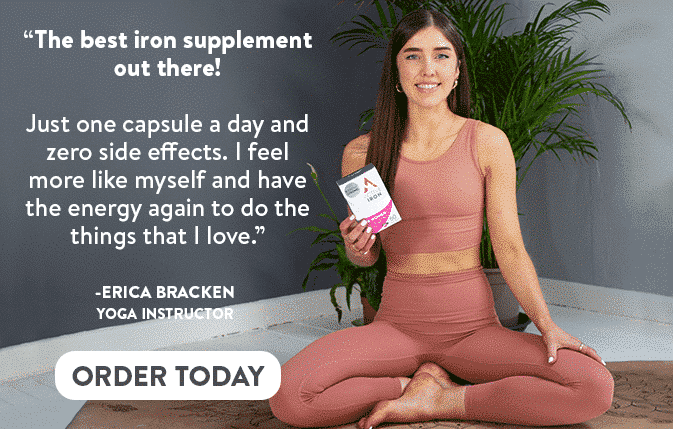UNDERSTANDING PERIOD FATIGUE.

Monthly periods often lead to tiredness and fatigue. Feeling tired and sluggish is the expected norm for many, but it shouldn’t be.
This guide will help you figure out why you’re so tired throughout your menstrual cycle and what you can do about it. With this guide, you learn about:
- What is period fatigue
- How common period fatigue is compared to other period symptoms
The causes of period fatigue
How to prevent or reduce period fatigue
When to see a doctor about your period fatigue
What is period fatigue, and is it normal?
As your period approaches, you may experience some changes in your energy levels. Fatigue is one of the most common period symptoms.
The hormonal and chemical changes and physiological responses our bodies experience monthly can cause us to feel extra tired at specific points in our menstrual cycles. You may be experiencing period fatigue if you feel low in energy, tired, or listless in the days leading up to and during your period.
According to our research at Active Iron₁, 49% of women experience tiredness and fatigue due to their periods. While feeling tired before your period typically isn’t a sign of any underlying issue, severe tiredness may be outside of what doctors consider normal period symptoms. At the end of this guide, we’ll explain what fatigue symptoms to look out for and when to see a doctor.
How common is Period Fatigue among other Period Symptoms
Period fatigue is one of many menstrual cycle symptoms. The following list₁ shows the percentages of women who experience these typical period symptoms:
- Tiredness/fatigue – 49%
- Backache/pain – 39%
- Stomach cramps/pain – 64%
- Stomach bloating – 43%
- Sore breasts/breast tenderness – 35%
- Headaches – 27%
- Migraines – 13%
- Skin breakouts – 27%
- Mood changes – 44%
- Insufficient iron levels – 12%
- Change in bowel movements – 27%
- Vomiting – 3%
- Fainting – 3%
- Change of appetite – 20%
You may be experiencing tiredness and fatigue throughout your cycle if you:
- Feel low in energy
- Find yourself sleeping in later than usual
- Feel the need to nap during the day
- Feel tired and listless
Below, we’ll take a closer look at why you’re feeling tired and what you can do about it.
What Causes Period Fatigue?
Most doctors and researchers believe that period fatigue, in addition to all PMS symptoms, is due to hormonal and chemical changes that occur around the time of menstruation. Additionally, some PMS symptoms can add to our levels of exhaustion.
Direct causes of period fatigue:
- Hormonal changes: estrogen production increases during the first half of the menstrual cycle (the follicular phase). Estrogen production decreases after ovulation and during the second half of the menstrual cycle (the luteal phase). Low estrogen levels can leave us feeling sluggish and tired.
- Chemical changes: Fatigue leading up to your period may be linked to a lack of serotonin, one of our mood-boosting brain chemicals. As your period approaches each month, your serotonin levels may fluctuate significantly, which can lead to a significant dip in your energy level.
- Inadequate iron levels: Monthly periods are the most common cause of iron loss worldwide, and research shows that women of childbearing age need up to 2X more daily iron than men. It is estimated that 220 to 250mg of iron per pint of blood is lost during menstruation. Inadequate iron levels can cause tiredness and fatigue, but you can replenish your iron stores by increasing your dietary intake and considering taking an iron supplement such as Active Iron.
Indirect causes of period fatigue
Quality sleep is essential for our physical and mental wellbeing, but period symptoms can disturb our sleep and bring other symptoms to make us feel extra tired.
- Insomnia and sleep problems: A 2017 study published in the US National Library of Medicine states that PMS influences stage 2 of REM sleep in women. They found that menstrual-related hormonal fluctuations may be responsible for women having more disturbed sleep than men.
- Pain and bloating: Cramping, back pain, and bloating are other typical period symptoms. Feeling physically unwell in these ways can increase lethargy.
- Giving in to unhealthy food cravings: During our periods, our bodies often send us messages or food cravings asking for specific nutrients that can help relieve our period symptoms.
For example, it’s typical to crave chocolate leading up to our periods because chocolate is full of magnesium, an ingredient proven to be an effective treatment for muscle function. Other typical food cravings, like comfort foods high in carbohydrates, raise serotonin levels—the hormone linked to mood swings and depression when low during our periods.
Unfortunately, many of these foods in their form today come with some other ingredients that, when eaten in excess, could lead to increased period symptoms and blood sugar crashes. This dip in blood glucose levels could leave you feeling more tired.
9 Tips That Can Help with Period Fatigue
Perhaps you’re glad to take some downtime for yourself once a month to give your body some rest during your natural hormonal and chemical fluctuations. There are, however, steps you can take that may help alleviate your fatigue throughout your period and cycle:
- Pain killers: Anti-inflammatory pain relief, like Ibuprofen, can help reduce pain and inflammation. Taking them before bed as per the manufacturer’s guidelines can relieve mild cramping to help increase your sleep quality if cramps and discomfort keep you awake.
- Contraceptive pill: When period symptoms are severe, doctors sometimes suggest birth control pills to help keep hormone levels more regulated.
- Supplements: Iron supplements such as Active Iron can help support iron levels throughout your cycle. Active Iron is clinically proven to increase iron levels by 94% while helping to avoid the common side effects of iron, including constipation, nausea, and diarrhea.
- Exercise: Regular aerobic physical activity throughout the month can help with period-induced fatigue. A 2015 study published in the National Library of Medicine corroborates this tip. They found that participants who exercised regularly showed a significant reduction in period fatigue.
- Nutrition: Choosing healthy foods mostly and reducing caffeine, salt, and sugar may ease period symptoms, including period fatigue. The Cleveland Clinic explains that eating various fruits and vegetables can help alleviate period symptoms. They state that leafy greens like kale and swiss chard, rich in iron and B vitamins, can help with tiredness and fatigue. However, it’s important to note that leafy greens contain non-heme iron, which is harder to absorb. Therefore, iron supplementation may be beneficial in helping to support iron levels.
- Sleep: A woman’s baseline body temperature increases by about 0.5C before her period, which may lead to poor sleep. If you’re struggling to fall asleep, try lowering the temperature of your home before going to bed. Aim to get about eight hours of sleep each night to ease period symptoms like depression, anxiety, and fatigue.
- Relaxation techniques: Find healthy ways to cope with stress, like meditation, breathing exercises, gentle exercise, yoga, massages, or warm baths. These techniques can help you wind down before bed and enjoy a deeper night’s sleep.
- Acupuncture: A 2014 review published in the BMC found that acupuncture resulted in a 50% or better reduction of period symptoms.
- Hydration: Drinking enough water throughout the day is especially important when you’re on your period and losing more fluids than usual. Harvard Health Publishing explains that adequate hydration can make a big difference if your energy is low. Dehydration can leave us feeling tired, and replenishing the water in our bodies may help to lift our energy levels again.
When Should You See a Doctor about your Period Fatigue?
The Office on Women’s Health reports that as many as 5% of women experience premenstrual dysphoric disorder (PMDD), a more severe form of period symptoms. Severe period fatigue may be a symptom of PMDD, which may require medical treatment.
Talk to your doctor if you experience any of the following symptoms:
- Fatigue that interferes with your ability to carry out daily activities and duties
- Fatigue that persists after your period has ended
- Other severe or debilitating PMS symptoms
Period Fatigue at a Glance
Understanding period fatigue, its causes, and possible solutions can help you take educated steps throughout your menstrual cycle. To review, here’s a quick summary of the main takeaways regarding period fatigue:
- Period fatigue is one of several typical PMS symptoms that over 90% of women experience during their menstrual cycle.
- Period fatigue is likely due to hormonal and chemical changes, low iron levels, and other compounding PMS symptoms that can leave us feeling extra tired.
- Treatment, like NSAIDs, birth control pills, supplements, and antidepressants, may help alleviate PMS symptoms like fatigue.
- Exercise, nutritious food, sleep, relaxation, and hydration, can lessen period fatigue.
- Alternative treatments, like acupuncture and medicinal herbs, may also help.
- If your fatigue is severe, persists, or doesn’t improve with at-home solutions, you should talk to your doctor.
Whether you want to get back to work, have the energy to take care of and play with the kids, play a sport, or feel more vivacious, try these steps throughout your cycle and see if they ease your fatigue.


